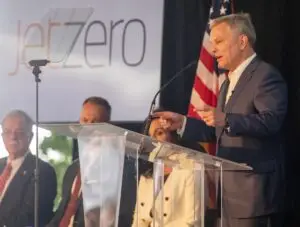The Rural Health Care Telecommunications (Telecom) Program is a federal initiative launched to provide funding and support to health care providers in rural communities across the United States. Improving the quality of medical care in underserved areas by increasing access to advanced telecommunications and broadband services while reducing rates for eligible healthcare providers is the program’s primary goal.
Through this program, rural healthcare providers can access two subprograms: the Health Care Connect Fund Program and the Telecommunications Program. The Health Care Connect Fund Program is designed to help rural healthcare providers build and maintain broadband networks, while the Telecommunications Program provides support for eligible health care providers to access a variety of communications services.
The program supports a wide range of eligible providers. These providers include rural health clinics, skilled nursing facilities, community health centers, mental health centers, and care facilities for migrants. Eligible providers can take advantage of a flat discount rate for communications services. This helps them stretch their budgets and maximize their ability to provide quality medical care to their patients.
With the Rural Health Care Program, healthcare providers in rural communities can access a range of advanced telecommunications and broadband services. Such services that are often not available in remote areas. In addition, the reduced rates on eligible services provided through this program create opportunities for providers to expand their connectivity and deliver better healthcare services to underserved communities.
Overall, the Rural Health Care Telecommunications Program is an excellent initiative to improve medical care access and quality in rural areas. By providing funding and support to eligible healthcare providers, this program reduces the gap between rural and urban healthcare services and supports the delivery of quality medical care irrespective of the home address.
Providers of Telecommunications and Other Services
The success of rural health care heavily relies on the availability of telecommunication and other related services. Fortunately, the rural healthcare program allows eligible healthcare providers and other entities to benefit from subsidies given to them for telecommunication and internet expenses. This section highlights the providers of telecommunications and other services that offer reliable connectivity and innovative technologies to rural healthcare facilities and communities.
Voice and Data
Services Provided by Eligible Telecommunication Service Providers in the Rural Health Care (RHC) Program
The RHC Program’s Telecommunications Program provides eligible healthcare providers in rural communities with access to affordable voice and data services. Specifically, the program offers funding to eligible healthcare providers to help cover the costs of monthly recurring charges for voice and data communication services needed to provide healthcare services.
To be eligible for the RHC Program, a healthcare provider must:
- Be a non-profit or public entity that provides health care services to rural communities;
- Be designated as an eligible healthcare provider by the Federal Communications Commission (FCC)
- Be registered with the Universal Service Administrative Company to participate in the RHC Program.
Once eligible, healthcare providers can apply for funding to cover the costs of a variety of voice and data services, including:
- Broadband internet access
- Local and long-distance telephone service
- Virtual private network services
- Wide area network services
- Interconnected Voice over Internet Protocol (VoIP) services
- Other advanced telecommunications and information services
Expert Assistance
Carolina Digital Phone works closely with agencies like the Universal Service Administrative Company assisting eligible healthcare providers in securing E-Rate funding for potential customers. Additionally, eligible healthcare providers must adhere to certain requirements to acquire voice and data services, including:
- Going through a competitive bidding process to acquire services from eligible service providers
- Signing a multi-year commitment contract to receive the services selected through the competitive bidding process
By following these requirements, eligible healthcare providers gain access to quality voice and data services, which improve communication and overall health care instruction between rural health care providers and their patients.
In summary, the RHC Program’s Telecommunications Program offers eligible health care providers access to crucial voice and data services that are necessary for rural health care providers. With the help of eligible service providers like Carolina Digital Phone and adherence to the competitive bidding requirement and multi-year commitment requests, rural healthcare providers can significantly improve their patients’ quality of healthcare services.
FCC Announces Availability of Unused Funds
The Federal Communications Commission (FCC) recently announced the availability of unused funds to fully fund the demand for the Rural Health Care (RHC) Program. This announcement brings good news for eligible health care providers who can now have access to crucial voice and data services necessary for rural health care provision. In this article, we will discuss the implications of this announcement, how eligible health care providers can benefit from the RHC Program, and the application process for interested parties.
FCC Rethinks RHC Program
The Federal Communications Commission (FCC) has made recent changes and proposed amendments to the Rural Health Care (RHC) Program to make it easier for eligible health care providers and facilities in rural areas to receive financial support for high-speed broadband and telecom services.
One of the main goals of the modifications is to simplify compliance obligations for service providers and ensure that rural health care providers receive fair compensation for the services they provide while deterring waste, fraud, and abuse of RHC Program funds.
To achieve this goal, the FCC has taken several steps. They restored prior rate determination rules that were previously eliminated, including the elimination of the rules requiring the Rates Database for the Telecom Program. The FCC has also made modifications to the RHC Telecom Program invoicing processes, internal cap application, and prioritization rules.
Also, the FCC introduced a Further Notice of Proposed Rulemaking (FNPRM), seeking comments on fine-tuning rules for determining rural and urban rates. The FNPRM also proposes reinstating the cap on support for satellite services, making it easier for health care providers to receive RHC Program funding. Additionally, the FCC seeks to revise data collected in the Telecom Program.
Overall, the FCC’s recent amendments and modifications to the RHC Program demonstrate their commitment to improving medical care in rural communities by bridging the divide between urban and rural rates for telecommunications services and making health care instruction and other critical communication services accessible to underserved communities.
Conclusion
In conclusion, rural health care telecommunications funding is an important and necessary element of providing quality care to underserved populations in rural areas. The programs available through the Federal Communications Commission, such as the Rural Health Care Program provide a critical source of funding for these communities. Healthcare providers need to understand the details of these programs and how they can best use them to ensure that their patients receive quality care.
The Rural Health Care Program has the potential to make a tremendous difference in underserved rural communities. By providing financial support for high-speed broadband and telecommunications services, this program enables healthcare providers and facilities to better serve their patients. The modifications that have been made by the FCC are an important step in ensuring that these funds are used efficiently and effectively.
For more information and guidance, healthcare providers should contact the experts at Carolina Digital Phone at (336) 544-4000 or by email at [email protected] for assistance in navigating these programs and finding the best solutions.






